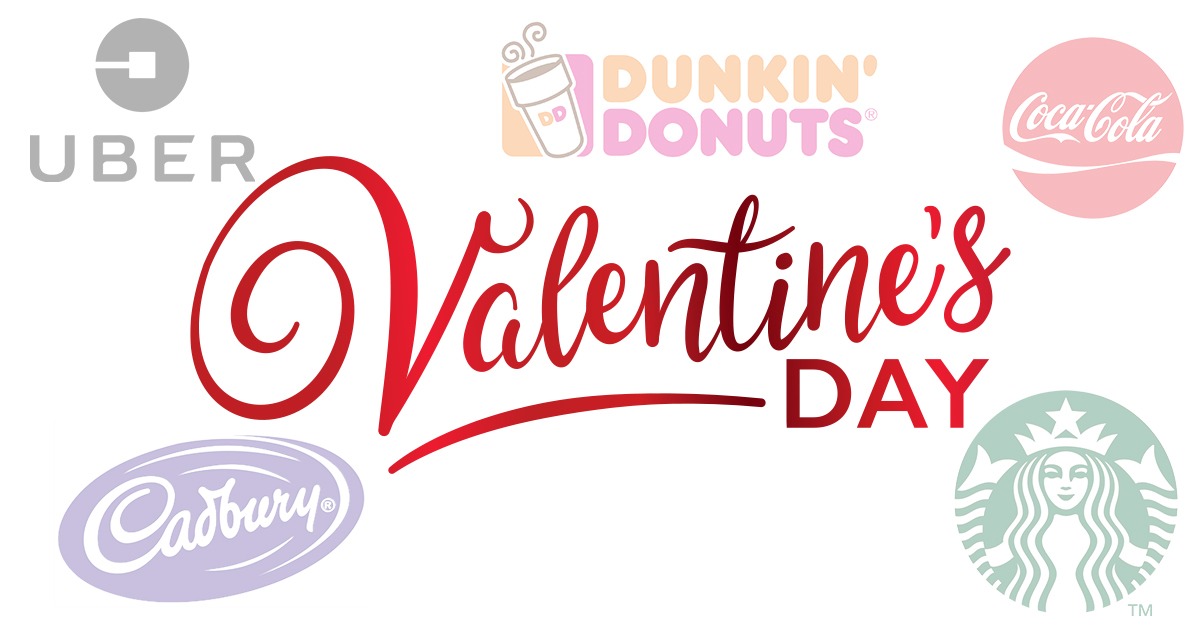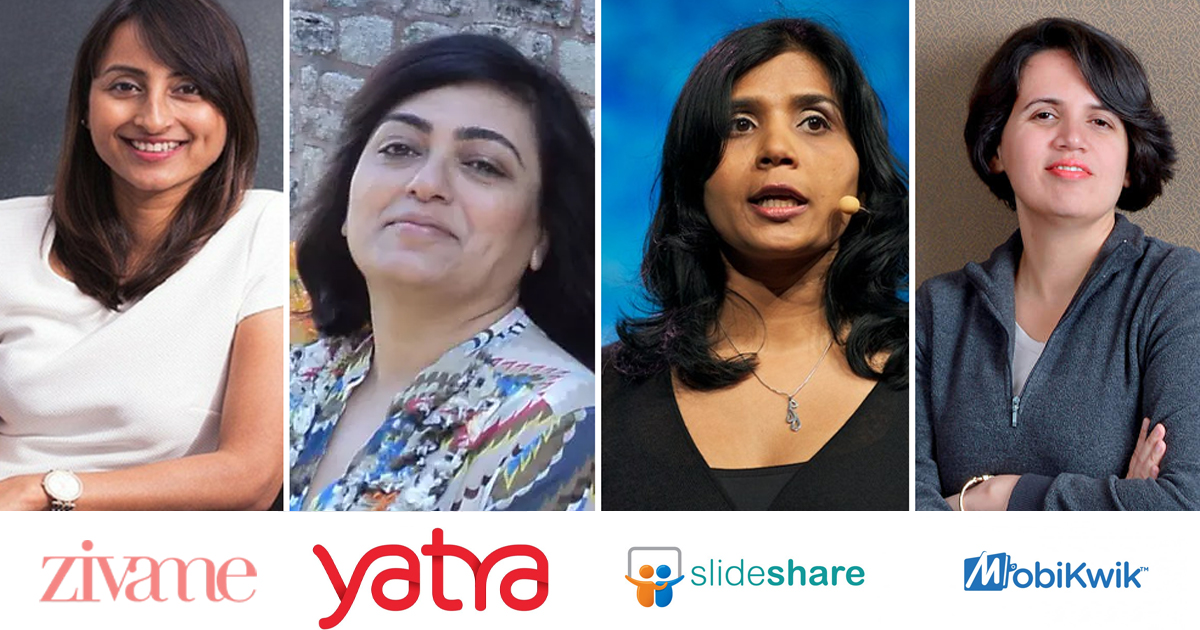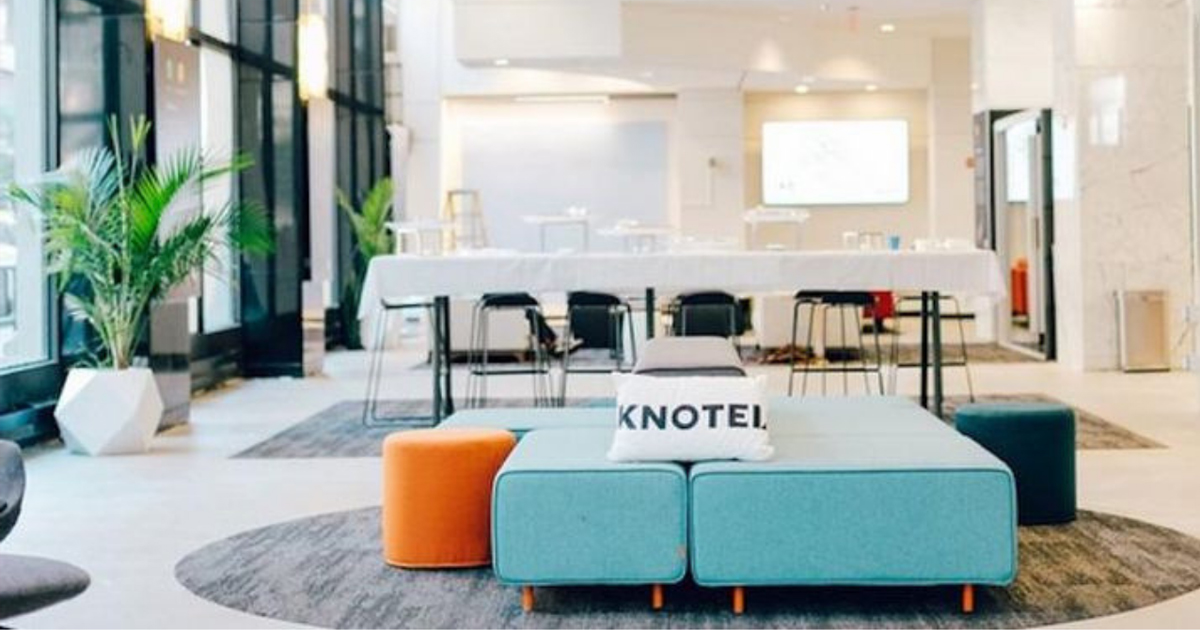Articles
Best Valentine’s Day Campaigns Run By Famous Brands

With Valentine’s Day right round the corner, every brand and organisation is scrabbling to have a strategy in place to increase their brand visibility and awareness. Needless to say, the advent of technology and digital platforms gave us some unique campaigns over the years. Some simple, some extravagant, but each one of them special because they all came together to celebrate love.
Let us have a look at some memorable Valentine’s Day campaigns we witnessed over the recent years.
1. Cadbury
Cadbury is a brand known all over the world mainly due to their bestselling chocolate, the humble Dairy Milk. It comes as no surprise Cadbury decided to theme their Valentine’s Day 2018 promotions around chocolate. The campaign, ‘Pop Your Heart Out With Silk,’ aimed to celebrate love in all forms. For the campaign, Cadbury released exclusive Dairy Milk Silk chocolates which had a heart shaped chocolate piece which could just be nudged out. The chocolate is a part of a gift hamper which contained two such Dairy Milk Silk bars and two Dairy Milk Silk Oreo bars, a customised greeting card and a photo frame.
Watch the video to know more about the campaign.
2. Dunkin’ Donuts
One of the world’s favourite desserts, the unassuming donut, also got a campaign of its own for Valentine’s Day 2017. Whether it is simply glazed, sprinkled or with toppings, the donut comes in many shapes and forms. Leading donut chain Dunkin’ Donuts did a campaign themed around Valentine’s Day by creating a contest named ‘Dunkin’ Love.’ The campaign urged users to show their love for the brand by sharing photos of the brand on Instagram. Lucky winners had the chance to win a year’s worth of free coffee, donuts and a cash prize of $ 2,500. The campaign also made use of geolocation so that exclusive Valentine’s Day content could be viewed at Dunkin’ Donuts’ stores. This year, Dunkin’ Donuts is running a campaign named #ValentinesDaySweepstakes, where anyone can tag a friend with the hashtag to get a chance to win a year’s worth of free donuts.
3. Uber
Taxi hailing giant Uber did their own version of a Valentine’s Day campaign by branding it ‘Romance on Demand.’ Uber has its own creative ways of running campaigns. For example, on Pride Day, Uber changed the colour of the car icon on its app to a rainbow colour theme. However, for Valentine’s Day 2013, Uber turned into a rose delivery service. Users could just log into the Uber app to request a bouquet of roses, which were delivered to their special someone’s address by a driver in a suit. Although the service was expensive and was priced anywhere between $ 100-150, it became popular and encouraged app downloads. In the year 2016, Uber teamed up with the Kisses brand of Hershey’s to run a campaign named #UberSerenade. Users could request a serenade for their loved ones, wherein a person would go to the address given and sing songs about love.
4. Coca-Cola
In 2015, the iconic brand, with its red and white colour theme, came up with a very unique Valentine’s Day campaign which aimed at getting people to interact with and get to know strangers at bus stops. Two consecutive bus stops were set up with screens, cameras and a mic. People could see who is at the other bus stop and interact with them. The distance between the bus stops offered safety and was intended to make people shed inhibitions and converse with strangers. The people who interacted were in for a shock when the person with whom they interacted got onto the bus at the next stop. However, the conversations resumed once they greeted each other.
Watch the video here.
5. Starbucks
Starbucks, the world’s largest coffee brand, created a fun campaign for Valentine’s Day 2015. Starbucks partnered up with Match.com, the United States of America’s leading matchmaking platform, to run a campaign. A feature named ‘Meet At Starbucks’ was added to Match.com and users could use this feature to send out an invitation for a coffee date. Users who clicked the button could email each other and meet up at a nearby Starbucks.
We hope these campaigns made for a fun read. With Valentine’s Day fast approaching, let us know of any other fun campaigns like these which make for a good read about marketing strategies.
Articles
5 Successful Indian Startups Founded By Women

The workplace has undergone massive changes in the last century. At the turn of the Industrial Revolution, any workplace was dominated by men while the women were delegated to run the homes. However, with the advent of the internet and new and exciting technologies, workplaces have undergone a tectonic shift. Women are no longer comfortable staying at home and are instead opting to lead teams and organisations. As every year passes, we get closer to true gender equality, women have proven time and again that they are equally capable to get the job done if not better in some instances. Names like Wolfe Herd (Bumble founder,) Kylie Jenner (Kylie Cosmetics founder,) Masaba Gupta (Masaba clothing label founder) are just some of the names who are known for leading world famous brands with their unique style of leadership.
As the world celebrates International Women’s Day, we bring to you five women founders who run world famous and successful startups.
1) Upasana Taku-MobiKwik
If you are an Indian and are used to doing online shopping, more often than not at the time of payment, you would be directed to a payment gateway. One of these gateways would normally be MobiKwik. The startup is a well known name in the digital payments and digital wallet space. MobiKwik was founded by Upasana Taku in 2009, who prior to founding MobiKwik used to work with PayPal. Today Upasana Taku is also in charge of bank partnerships, business operations, and talent acquisition at MobiKwik.
2) Richa Kar-Zivame
An enthusiastic MBA student, Richa Kar, developed an online lingerie shopping platform in the year 2011. Currently, Zivame is India’s leading online lingerie store with a valuation of more than $ 100 million. The brilliant idea for her own lingerie business came to light when Richa tracked Victoria’s Secret’s sales, who was one of her clients when she was working at SAP. She observed the lingerie sales figures reached peaks overseas but, Indian women were not provided with the similar innerwear. While Richa was studying the Indian lingerie market, she realized the social embarrassment in India surrounding lingerie shopping. Today Richa Kar could be credited with destigmatising the uneasiness surrounding lingerie shopping in India.
3) Falguna Nayar-Nykaa
After a long stint as an investment banker, Falguni Nayar founded Nykaa.com in the year 2013. An online one stop shop for beauty products from Indian and international brands, Nykaa changed the world of online shopping. Who would have ever thought buying makeup online would be so easy? Falguni Nayar proved many critics wrong and created a brand new place for people who love experimenting with styles, designs and colors.
ALSO READ: Zivame: Founding Story
4) Sabina Chopra-Yatra.com
Yatra.com is a popular Indian website for making flight and hotel bookings. Sabina Chopra was instrumental in identifying the potential for travel commerce in India and people moving towards cheaper or easier travel. By the time, people started looking to make bookings, Sabina made sure Yatra.com was already in place. Sabina was the former Head of India Operations of eBookers, which is also an online travel company based in Europe. Along with this, she was also working with Japan Airlines which further adds to her experience in the travel industry.
5) Rashmi Sinha-SlideShare
SlideShare allows people to upload and access their presentations online. While this feature is presently available everywhere, SlideShare was one of the first players in making this happen. Rashmi Sinha was one of the founders of the presentation sharing platform SlideShare. The company became so successful that in 2012, LinkedIn acquired the company for an amount of $100 million.
Let us know in the comments if you know any other wonderful women who have become leaders of their right or have started up and are doing extraordinary things. We at Startup Stories wish a wonderful Women’s Day to all the women in the world who are changemakers.
Articles
Why Are Ads On Digital Media Failing To Reach The Right Audience?

If you are a regular user of social media platforms and also a fan of consuming content on the digital medium, then there is a very high likelihood that you have seen ads on pages you are reading or watching something. There would be times when you have been targeted by an ad which feels like it was wrongly targeted at you. Imagine if you are a vegetarian by choice and while browsing online, if you are targeted by a food delivery app which shows ads about chicken dishes. The ad would only serve to spoil the mood of the online user instead of serving its actual purpose which is to push the user to buy a chicken dish.
These wrongly targeted ads might be the side effects of performance marketing or a weak brand marketing. Performance marketing means advertising programs where advertisers pay only when a specific action occurs. These actions can include a generated lead, a sale, a click, and more. Inshort, performance marketing is used to create highly targeted ads for a very specific target audience at a low cost. Performance marketing usually means high volume for a very specific cost.
Brand marketers on the other hand believe in narrowly defining target audiences but end up spending a lot of money on ad placements. Gautam Mehra, CEO, Dentsu Programmatic India & CDO, Dentsu International Asia Pacific said, “You’ve defined a persona, you know the emotions you want to elicit, but then you buy a YouTube masthead and CricInfo sponsorships because IPL is up. If brand advertisers look at audience-based buys more deeply than just placements, you will see more relevant ads (sic.)”
ALSO READ: How Digital Marketing Is Impacted Due To The COVID-19 Pandemic
Performance marketing is more of a sales function rather than a marketing function and is about meeting the cost of acquisition. This is a reason why budgets are usually high for performance marketing. Mehra goes on to add, “the fact is that an engineer can out-beat FMCGs on performance marketing. Advertisers who have cracked this are spending 10x and are on an ‘always on’ mode (unlike time-bound brand campaigns.)”
There is always the case of supply and demand, with the supply usually exceeding the demand on digital platforms. Ultimately, it boils down to the choice between no ad versus low relevance ad and it is quite easy to guess that having a low relevance ad is better.
Arvind R. P., Director – Marketing and Communications at McDonald’s India (West and South,) said “McDonalds’ for instance, has seen its share of spends on digital grow from 20% levels a couple of years back to over 40% at present. Outcomes of this journey have been encouraging, proven by our media-mix-modelling and other key metrics. We have seen best results from an optimal mix of Television plus digital (sic.)” Moreover, Arvind also believes performance marketing only approach could turn out to be more suited to short term, versus a more consistent full funnel effort. The latter ensures adequate emphasis on building consideration, as well as growing transactions. Arvind feels digital is a complex medium which needs investment in the right talent who could use the right tools. Brands which underestimate the need for the investment are often disappointed from the return on investment from the digital medium.
With the constantly changing consumer dynamics marketers are now shifting to unscripted marketing which frankly needs more insights into the consumer mindset. The lack of marketers to do the proper research is why digital medium is plagued with irrelevant ads.
Articles
From Unicorn To Bankruptcy; Knotel Bears The Brunt Of COVID-19 Pandemic

It is no secret that in the fast paced world of startups, fortunes can change at the snap of fingers. Sometimes startups tend to scale so quickly that they become unicorns and sometimes the fortunes reverse so quickly that a startup can immediately go bankrupt from being a unicorn. The latter was the case for an American property technology startup Knotel, who are now bankrupt due to the disruptions by the COVID-19 pandemic.
Knotel is a property technology company quite similar to WeWork. Knotel designed, built and ran custom headquarters for companies which It manages the spaces with ‘flexible’ terms. Knotel does a mix of direct leases and revenue sharing deals. Knotel marketed its offering as ‘headquarters as a service’ or a flexible office space which could be customized for each tenant while also growing or shrinking as needed. For the revenue-share agreements, Knotel solicits clients, builds out offices, and manages properties, and shares the rent paid to it by the client with the landlord. This model is the majority revenue generator for Knotel.
In March 2020, just before the COVID-19 pandemic unleashed its economic destruction on the world, Knotel was valued at $ 1.6 billion. What is even more interesting is Knotel raised $ 400 million in Series C funding in August 2019 which led to its unicorn status. However, with the COVId-19 pandemic and its consequent lockdowns and curfews by various governments across the world, startups and businesses shifted to a remote working model. This in turn led to startups pulling out of Knotel properties to cut down on working costs.
ALSO READ: Quibi : Startup With A Billion Dollar Launch To Shutting Down All In Six Months
In late March 2020, according to Forbes, Knotel laid off 30% of its workforce and furloughed another 20%, due to the impact of the coronavirus. It was at this point that Knotel was valued at $ 1.6 billion. The company had started the year with about 500 employees. By the third week of March,Knotel had a headcount of 400. With the cuts, about 200 employees remained with the other 200 having either lost their jobs or on unpaid leave, according to Forbes.
In 2021, Knotel filed for bankruptcy and agreed to sell its assets to Newmark, one of their investors for a total of $ 70 million dollars. As work culture is still undergoing changes as a consequence of the COVID-19 pandemic and with many companies realising that remote work model saves costs and improves work efficiency, the flexible workspace sector would continue to face challenges. Knotel is just the tip of the iceberg and is a warning call for the flexible working spaces industry.













Private Airport Shuttle Nassau Bahamas
March 17, 2025 at 8:37 pm
Arrive in style with the VIP Shuttle Service Nassau Airport, featuring a Luxury Transfer from Nassau Airport. Our Nassau Bahamas Airport Luxury Shuttle provides a Nassau VIP Shuttle to Hotels, ensuring a comfortable and exclusive experience every time.
Itmbiiwz
May 27, 2025 at 5:24 am
Explore the ranked best online casinos of 2025. Compare bonuses, game selections, and trustworthiness of top platforms for secure and rewarding gameplaycasino bonus.
mtpzkmkeb
July 18, 2025 at 7:21 pm
Nós também avaliamos se oferta pode ser utilizada nos melhores jogos de cassino e nos detalhes de cada um desses títulos, passando por tipo de jogo (slot, crash game, mesas), RTP, volatilidade, aposta mínima, recursos disponíveis, prêmio máximo por rodada e mais. O prêmio máximo no Big Bass Bonanza é 2.100 vezes o valor da sua aposta total. Independente do premio máximo, os resultados dos jogos são imparciais e justos, portanto, defina um limite e jogue apenas por diversão. Não existe um melhor horário para jogar Big Bass Splash. Como se trata de um jogo de azar, seus resultados são determinados por um gerador de números aleatórios, o que significa que as chances de ganhar são as mesmas em qualquer momento do dia. Para jogar Big Bass Bonanza 1000, você precisa selecionar o valor da sua aposta e apertar o botão grande para girar as bobinas!
https://donskywealthmgmt.ca/sweet-bonanza-analise-e-popularidade-do-classico-da-pragmatic-play-no-brasil/
Os bónus de um casino online representam uma forma que as melhores plataformas encontraram para presentearem o seu público. No caso da Ice Casino de Portugal, os bónus estão disponíveis tanto para novos quanto para antigos jogadores e envolvem uma série de vantagens, como rodadas grátis, saldo em bónus e outras ofertas promocionais. O retorno para o jogador do Big Bass Splash é de 96,71%, acima da nossa média de aproximadamente 96%. Os bónus de um casino online representam uma forma que as melhores plataformas encontraram para presentearem o seu público. No caso da Ice Casino de Portugal, os bónus estão disponíveis tanto para novos quanto para antigos jogadores e envolvem uma série de vantagens, como rodadas grátis, saldo em bónus e outras ofertas promocionais. Sim! No Ice Casino Portugal online os jogadores podem ganhar dinheiro real a partir das suas apostas. Para retirarem os valores recebidos, basta que os jogadores cumpram as regras de inscrição na plataforma e realizem um levantamento no seu método de pagamento favorito.
gouyhikux
July 22, 2025 at 11:10 am
FaFaFa™ Gold Casino: Free slot machines Sign in One of the special features of Teen Patti Gold is the ability to play cards in Desi style, with traditional Indian card rules and rankings. The card rankings from high to low are: Minimum requirement to run Teen Patti Gold -3 Patti Rummy on your PC By following these steps, you can quickly enhance your gaming experience and dive deeper into the world of Teen Patti Gold. Bus Simulator Indonesia Choosing Moonfrog Teen Patti Gold means opting for a seamless and immersive gaming experience. The game is designed to cater to both beginners and seasoned players, offering a range of tables and stakes to suit your style. The intuitive interface ensures that you can focus on the game without any distractions. Minimum requirement to run Teen Patti Gold -3 Patti Rummy on your PC
https://a3autohub.com/full-mobile-access-guide-for-jetx-by-smartsoft-permissions-settings-and-compatibility/
Crossy Road is developed by Hipster Whale, based in Australia. Hipster Whale’s other games include PAC-MAN 256 and Shooty Skies. Crossy Road is the 8-bit endless arcade hopper that started it all. Collect custom characters and navigate freeways, railroads, rivers and much more! The History of Chicken in Crossy Road. Coleggt them all! Use the arrow keys to move sideways or forward. Don’t stand in the way of upcoming cars, or other incoming objects. The Among Us themed crossover features classic Among Us interactions and environments translated into Crossy Road’s iconic voxel style. Classmates Only The cock comb (top part 2 x 2 x 3 cm) In Crossy Road we’ll release an entirely new Among Us themed world and 4 new characters players can use to explore the Skeld and in Crossy Road Castle there’s a special 20 level timed event for players to explore and unlock.
MM88
November 6, 2025 at 7:27 am
Khám phá thế giới giải trí trực tuyến đỉnh cao tại MM88, nơi mang đến những trải nghiệm cá cược thể thao và casino sống động.
iwin
November 7, 2025 at 2:04 pm
iwin – nền tảng game bài đổi thưởng uy tín, nơi bạn có thể thử vận may và tận hưởng nhiều tựa game hấp
谷歌站群
November 8, 2025 at 12:52 am
专业构建与管理谷歌站群网络,助力品牌实现全域流量的强势增长。谷歌站群
站群程序
November 8, 2025 at 9:10 am
搭载智能站群程序,自动化搭建与管理,为SEO项目提供核心驱动力。站群程序
GO88
November 10, 2025 at 8:29 am
Tham gia cộng đồng game thủ tại Go88 để trải nghiệm các trò chơi bài, poker phổ biến nhất hiện nay.
MM88
November 20, 2025 at 10:03 pm
Với giao diện mượt mà và ưu đãi hấp dẫn, MM88 là lựa chọn lý tưởng cho các tín đồ giải trí trực tuyến.
J88
November 22, 2025 at 8:27 pm
Đến với J88, bạn sẽ được trải nghiệm dịch vụ cá cược chuyên nghiệp cùng hàng ngàn sự kiện khuyến mãi độc quyền.
Kuwin
December 1, 2025 at 8:56 am
kuwin sở hữu kho game đa dạng từ slot đến trò chơi bài đổi thưởng, mang đến cho bạn những giây phút giải trí tuyệt vời.